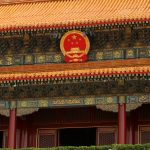Constructing National Unity: rooting side by side?
At Evergrande Football School’s campus, only the big football on the main square would prevent a stroller from thinking he or she would be in a university campus of Oxford or Cambridge. With 2500 players and fifty football pitches, Evergrande Football School is the biggest football school in the world, and other than its nineteenth-century architecture would suggest, it has been built in 2012 in Qingyuan, a city in Guangdong province in China. Even though Evergrande Football School is the biggest and, with its construction costs at two billion renminbi (over 250 million euros), the most expensive football school, it is not the only major football school in China. China’s football industry is expanding at such a rapid rate, as president Xi Jinping, a notorious football fan, has set the goal for China to win the world championship by 2050. However, Xi’s ambition to bring a country without any existing football culture to the top of the world championships – willing to spend billions in the process – should not be seen as a mere hobby that has gotten out of hand. People from the western provinces of Xinjiang and Tibet to the metropolitan areas of Beijing and Shanghai rooting and cheering for the same team would help to construct something the Chinese government has been striving for ever since the communist victory in the Chinese Civil War: a Chinese national identity.
China’s rising football industry is only one of the many facets of government-initiated campaigns to create a national identity out of China’s diverse 1.3 billion people. The need to construct nationalism in a state with many nations is pressing due to the nature of China’s political system. The members of the People Republic’s government are not elected during popular elections, but are appointed behind closed party doors. Therefore, the Chinese government cannot derive its legitimacy with the people from the way it is constituted, for it is constituted by the Chinese Communist Party. This means its legitimacy relies on its output: whether it produces effective government that benefits its people. With staggering economic growth rates the Party has until now succeeded in providing its citizens with the necessary “output legitimacy”, but once the growth rates start to plummet the Party cannot rely anymore on its economic achievements to claim legitimacy. This is why national identity is such a priority for the Party: common sense of allegiance to the Chinese flag and what it stands for amongst China’s population would create a continuous mandate for the Chinese government.
The first major government campaign that aimed at uniting the country was initiated when Deng Xiaoping came to power in 1977. After the huge divisions and resentments left by the Cultural Revolution, the Communist Party needed a strong shared sentiment to keep the country stable under the radical economic reforms. Japan, with its long and conflict-ridden history with China, proved to be the perfect antagonist in the narrative of Chinese nationalism. Campaigns that dug up Japanese war atrocities buried deep under the ground during the Maoist age manifested themselves in multiple anti-Japanese protests persisting until the present day. One of the telling examples of anti-Japanese sentiment is the anti-Japanese film industry in China, as well as online forums spreading hatred against Japan. Whether such a widespread and persistent antagonism was the initial intention of the Party has come under debate, and experts argue that anti-Japanese sentiment has outgrown government control and could pose a threat to the Party’s interests. According to this view, the Party has switched roles: from promoting anti-Japanese sentiment to containing it. However, with increased digitalisation and increased speed and scale of communication, even in one of the world’s most highly-censured countries containing radical grassroot movements is increasingly difficult. Opportunistic rapprochement with Japan has become a dangerous enterprise for the Party, because “pro-Japanese” policy now has the potential of sparking widespread protests.
Therefore, constructing a Chinese national identity is as difficult a task as it sounds: attempting to tame nationalism is playing with fire, because nationalist sentiment has a tendency of turning radical. Nationalist campaigns can cause irreversible collateral damage, as the example of anti-Japanese sentiment shows. Creating a population that is both united under nationalism and moderate in patriotism at the same time might be a very difficult task, but it is definitely necessary. Unifying the country under the banner of nationalism should be a priority for the Party if it wants to solidify its power. President Xi will have to tread cautiously when initiating new campaigns, while acknowledging the need for action. Evergrande Football School might very well produce China’s future world cup-winning legends, but it will depend on Party policy whether there will be a united, but also moderate public rooting for them.
Recommended readings
https://supchina.com/2017/02/24/really-need-worry-much-chinese-nationalism/
https://www.mirror.co.uk/sport/football/news/inside-worlds-largest-football-academy-12264762
https://www.telegraph.co.uk/news/world/china-watch/sport/chinese-football-powerhouse/
Featured Image:
Doha Stadium Plus Qatar, Chinese national football team 2011, CC BY 2.0



